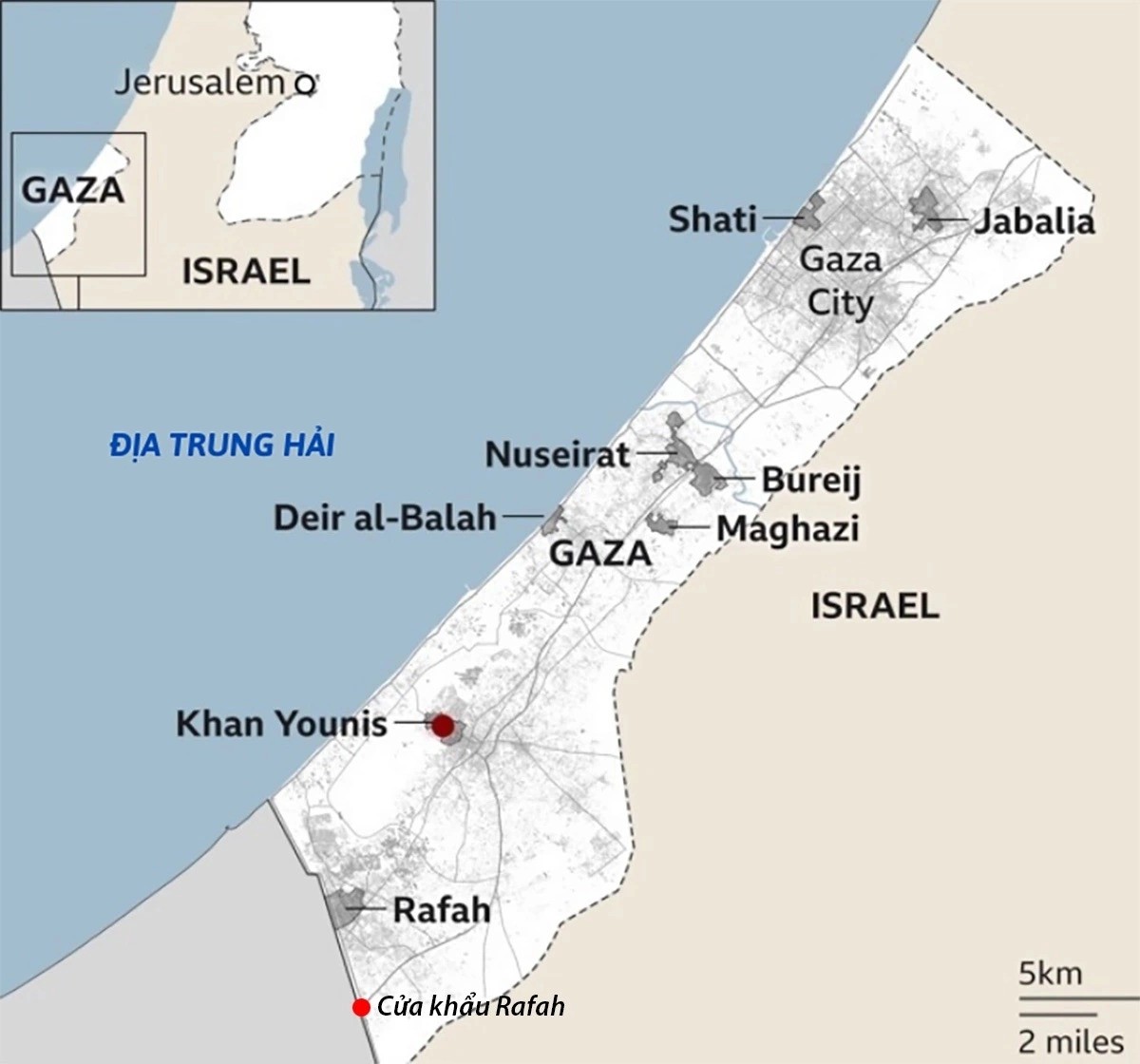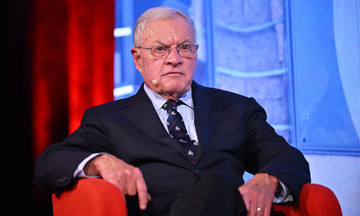A day after US President Donald Trump announced that Israel "has agreed to the necessary conditions to finalize a 60-day ceasefire" in the Gaza Strip, Hamas signaled its readiness to negotiate a ceasefire agreement with Israel.
"We are ready and serious in our efforts to reach an agreement. Hamas is ready to accept any initiative, as long as it aims to completely end the war," Taher al-Nunu, a Hamas representative, told the Associated Press (AP) on 2/7.
A Hamas delegation was expected to meet with Egyptian and Qatari mediators in Cairo on Tuesday to discuss the proposed ceasefire. In his earlier statement, Trump also said that Egypt and Qatar would be the parties to announce the details of the agreement.
 |
Israeli tanks near the Gaza border on 20/5. Photo: AFP |
Israeli tanks near the Gaza border on 20/5. Photo: AFP
According to Israeli officials, the ceasefire proposal includes provisions for a partial Israeli withdrawal from Gaza and increased humanitarian aid to the territory. The US and mediators want to ensure that peace talks are advanced during the 60-day ceasefire, but Israel is reluctant to commit to ending the war.
The Israeli government has not yet commented on President Trump's statement. Israeli Foreign Minister Gideon Saar only wrote on X on Tuesday that the country "should not miss any opportunity to rescue the hostages."
Israeli officials believe Hamas is still holding about 49 of the 251 hostages captured in 2023, of whom 27 have been confirmed dead by the Israeli military, but whose bodies Hamas has not yet returned.
Contrary to President Trump's statement, a Middle Eastern mediator told the Times of Israel that serious disagreements remain between Israel and Hamas. Further shuttle diplomacy would be needed to bridge the gap.
Two Arab diplomats said Hamas wants to restore the previous mechanism for distributing humanitarian aid or establish a completely new system to replace the current one run by the Gaza Humanitarian Fund (GHF).
 |
Map of Gaza Strip. Graphic: BBC |
Map of Gaza Strip. Graphic: BBC
The GHF is backed by the US and Israel to prevent Hamas from "misappropriating aid". However, the current mechanism is alleged to cause significant difficulties for Gaza residents in accessing food aid.
Residents have to travel long distances, cross Israeli military checkpoints, and face the risk of being misidentified as threats by Israeli soldiers.
After reaching a ceasefire agreement with Iran on 24/6, Israel announced it was focusing its forces on the main front in the Gaza Strip.
Throughout nearly 21 months of conflict, ceasefire negotiations between Israel and Hamas have repeatedly stalled, especially regarding the condition of whether or not the war would end after the ceasefire expires.
Israeli leaders have repeatedly stressed that the Gaza operation will only end when Hamas surrenders, disarms, and leaves the area, demands that Hamas has firmly rejected.
Thanh Danh (Via AFP, AP, Times of Israel)












